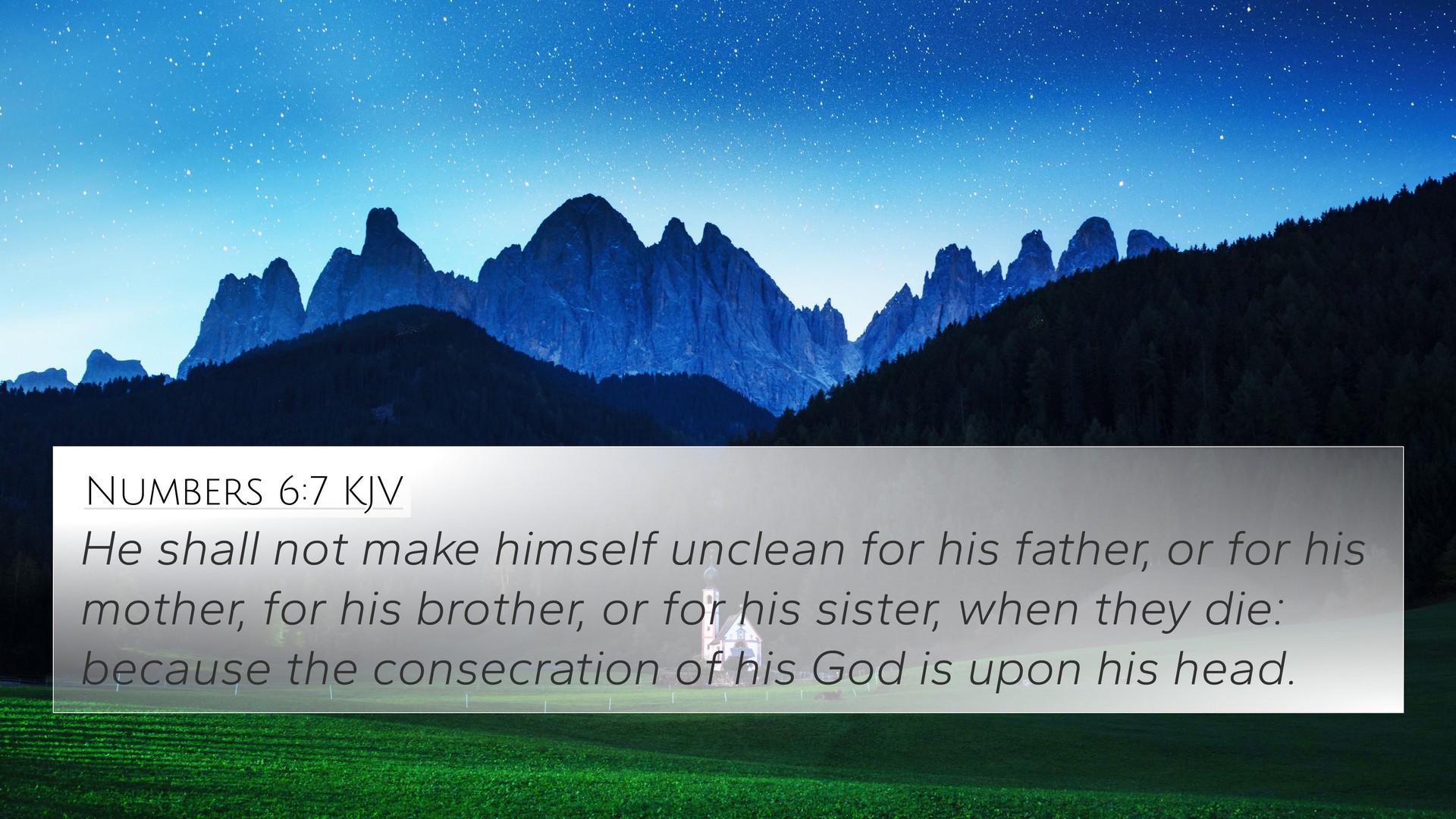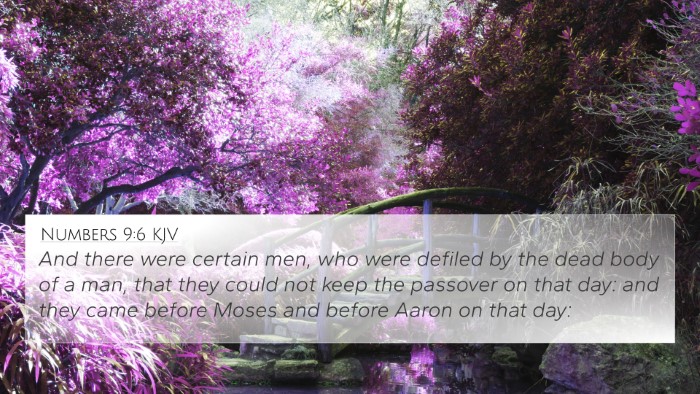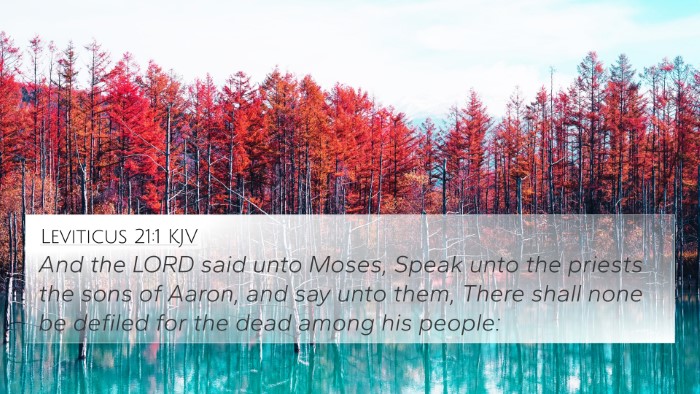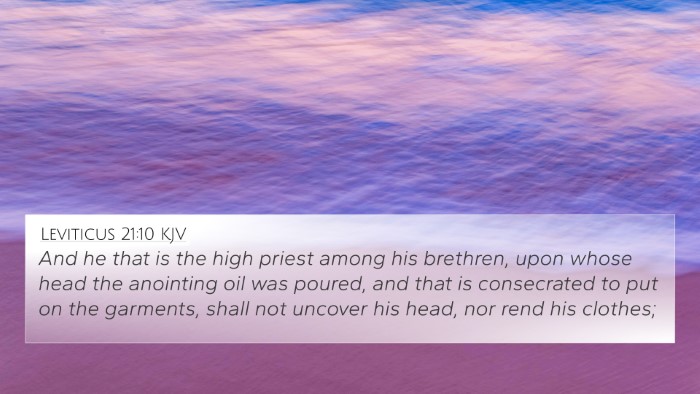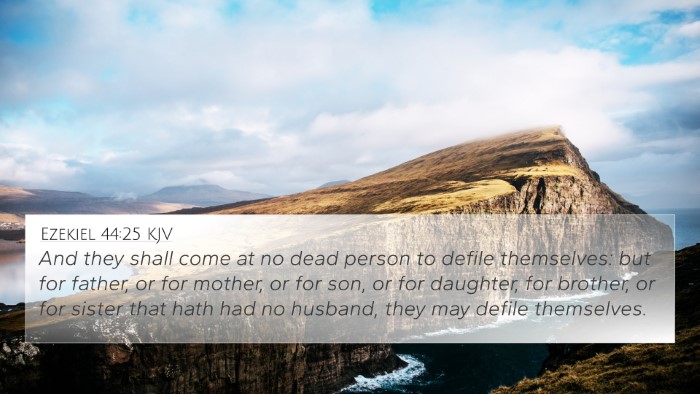Understanding Numbers 6:7
Numbers 6:7 states, "He shall not make himself unclean for his father, or for his mother, or for his brother, or for his sister, when they die, because his separation to God is on his head." This verse is part of the Nazarite vow, which symbolizes dedication to God.
Meaning and Interpretation
In this verse, the emphasis is placed on the commitment of a Nazarite to their vow of separation, setting a clear distinction between earthly obligations and spiritual dedication.
- Spiritual Dedication: The Nazarite's vow is characterized by a deep commitment to live a life devoted to God, which sometimes requires sacrificing natural familial ties.
- Reflection on Grief: Grieving for loved ones, while important, does not supersede the obligation to maintain one's dedicated relationship with God.
- God’s Priority: The verse illustrates the priority of God’s call above all other relationships and societal expectations.
Commentary Insights
Based on commentaries from Matthew Henry, Albert Barnes, and Adam Clarke, we can gather additional insights.
Matthew Henry's Commentary
Henry emphasizes the importance of commitment in a Nazarite's life, explaining that this commitment represents not just a personal vow, but a public witness to holiness and separation from worldly influences.
Albert Barnes' Notes
Barnes highlights that the Nazarite's vow could only be fulfilled by placing God first and does not allow for exceptions even in the context of death. The verse reminds believers that spiritual responsibilities, especially in terms of devotion, can sometimes conflict with temporal concerns.
Adam Clarke's Commentary
Clarke notes that this prohibition against contact with dead relatives illustrates a deeper principle: divine loyalty often requires challenging societal norms and expectations. By maintaining such separation, the Nazarite honors his sacred commitment to God.
Connections Between Bible Verses
This verse has notable cross-references that can deepen our understanding of its message, reflecting the broader Biblical themes of dedication and sanctity:
- Leviticus 21:11: Discusses the priest's prohibition from becoming unclean due to a dead body, which emphasizes the preservation of spiritual integrity.
- 1 Corinthians 7:31: Paul advises not to be overly concerned with worldly matters but to focus on serving God.
- Matthew 10:37: Jesus mentions the necessity of loving Him more than one's family, emphasizing the cost of discipleship.
- Hebrews 7:26: Describes Christ as a holy, innocent, and unblemished high priest, highlighting the importance of spiritual purity.
- Romans 12:1: Urges believers to present themselves as living sacrifices, holy and acceptable to God.
- 1 Peter 2:9: Refers to believers as a chosen people, called to declare God’s praises, indicating our call to holiness.
- James 1:27: Discusses pure religion as keeping oneself unstained from the world, echoing Nazarite sentiments.
Thematic Bible Verse Connections
When studying Numbers 6:7, it is beneficial to explore other passages which reflect similar themes of commitment, sacrifice, and holiness.
- Isaiah 26:2: Speaks of the righteous entering the city, symbolizing the rewards of spiritual dedication.
- Luke 14:26: Jesus’s teachings on discipleship call for prioritizing His call above familial ties, resonating with the principles outlined in Numbers 6:7.
How to Use Bible Cross-References
Utilizing these connections can greatly enrich one’s study and understanding of the Bible:
- Employing a Bible concordance can help identify themes and connections, aiding in deeper study.
- Cross-reference Bible study guides offer structured methodologies for tracking themes through scripture.
- Participating in cross-reference Bible study methods can provide insights from various passages that interact in meaningful ways.
Conclusion
Numbers 6:7 serves as a pivotal reminder of the strength of one’s commitment to God amidst the complexities of human relationships. Through understanding this verse alongside its biblical cross-references, one can grasp the profound spiritual truths regarding devotion and sanctification.
